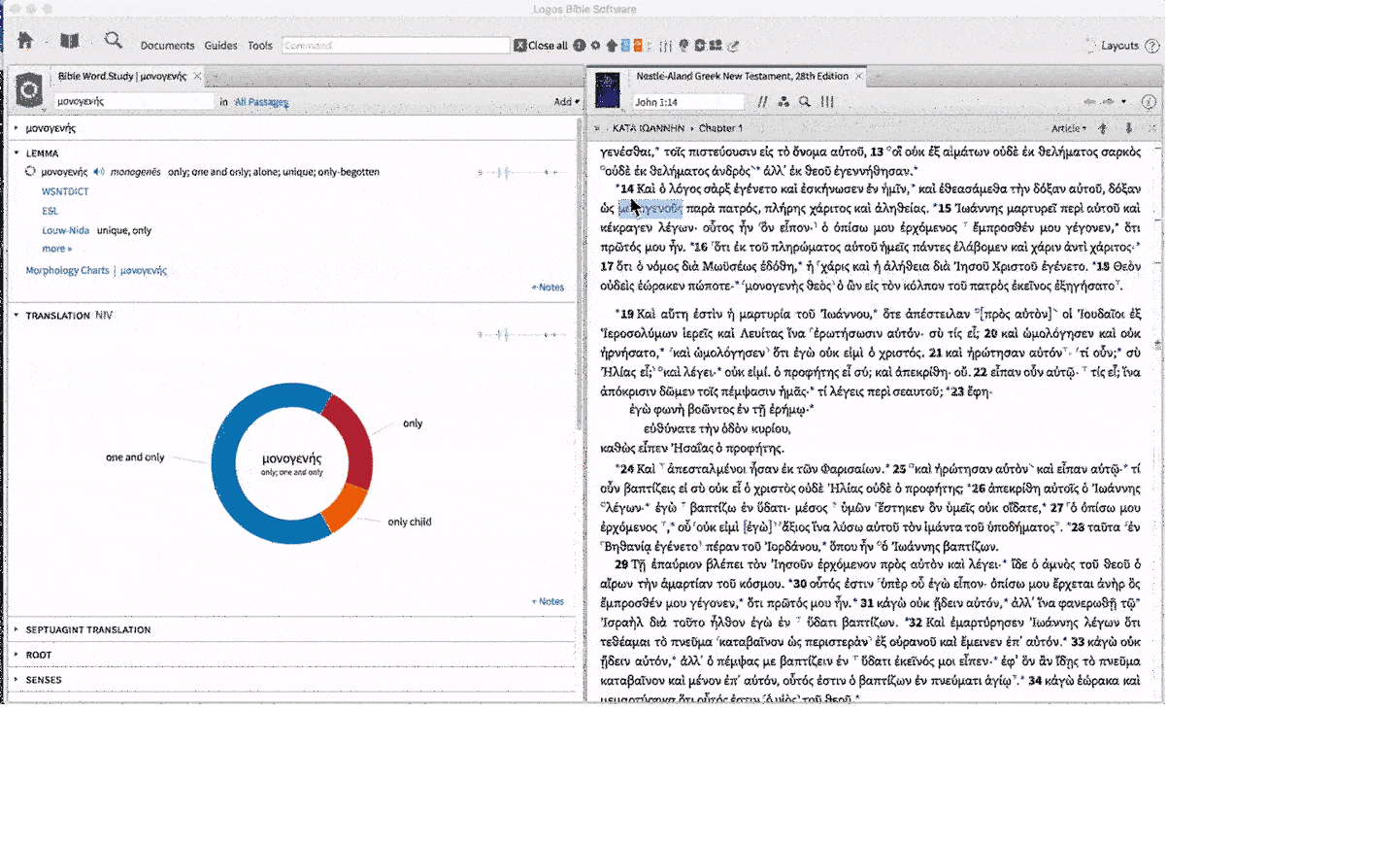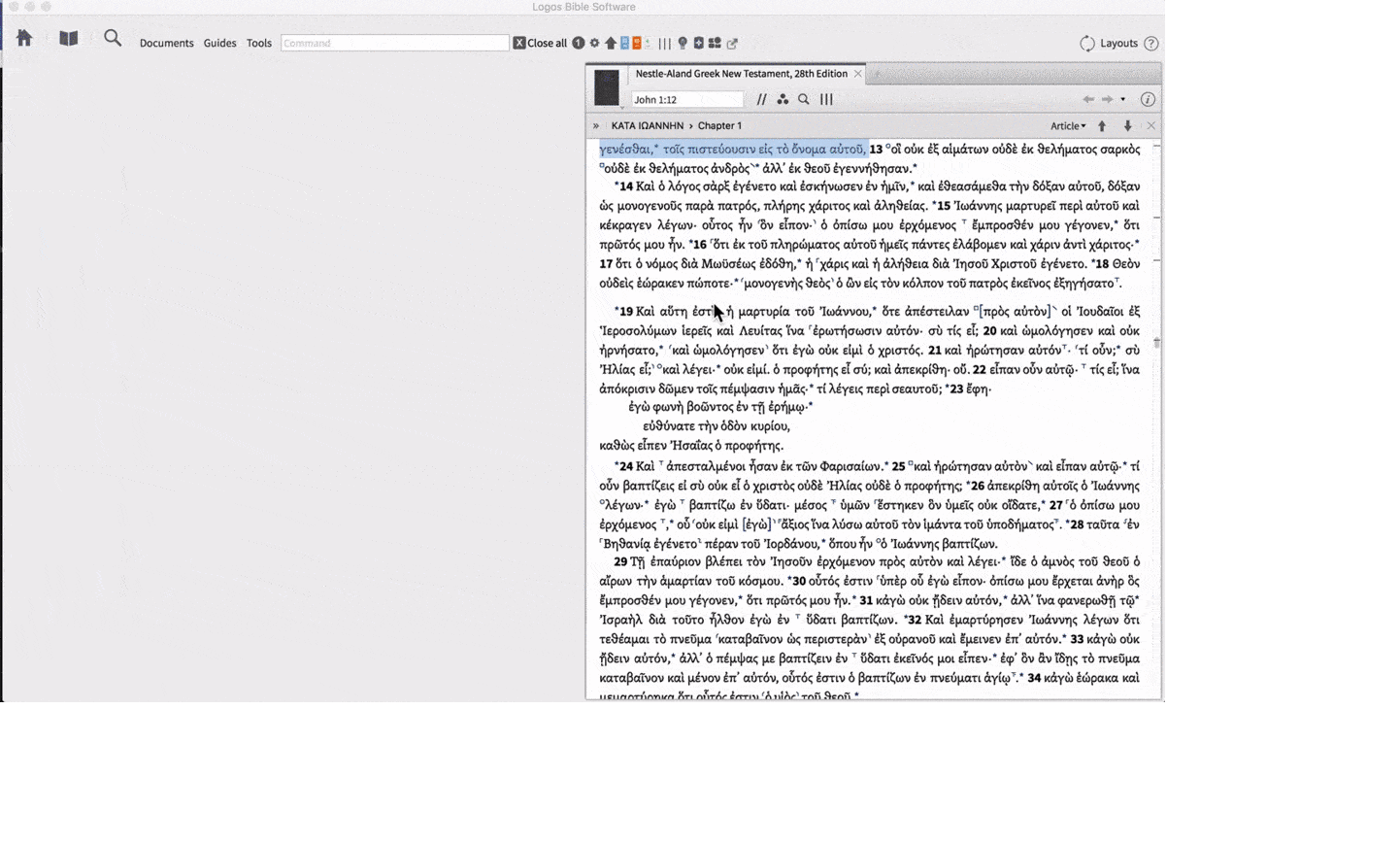During my time in seminary, fourth-semester Greek was synonymous with “pain.” This “pain” took the form of two, massive exegetical papers, each 30 pages in length.
Those papers were seemingly insurmountable obstacles that stood in the way of any person hoping to finish their seminary degree. An exegetical paper is intimidating because the content to be covered is very technical, and the time expenditure to complete the task is great.
I remember very clearly working on a section in one of those exegetical papers: the diachronic word study. For those who don’t know, a diachronic word study is the process of tracing a Greek word’s usage throughout history from Ancient Greece to the New Testament, and on to the time of the early church.
One of the most difficult parts of this word study process was navigating the lexical resources we were tasked to reference in our paper. Lexicons are heavy tomes filled mostly with unintelligible scribbles in barely-legible sized font. There were so many abbreviations in these volumes, I felt like I needed a decoder ring to navigate effectively.
I often referred to one such lexical tool as “the bane to my existence”: Liddell and Scott’s Greek-English Lexicon, otherwise known as LSJ. For me, this was the most notorious of all the lexical resources; it was the largest, the heaviest, had the smallest print, had the thinnest pages, and contained the most abbreviations to random obscure texts.
What make LSJ so important, though, is that it specializes in tracing a word’s usage through history, in particular its usage in ancient Greece. I spent hours struggling to mine this resource for lexical data that could potentially be distilled into one or two paragraphs on the usage of a word. At that point in my life, I hated LSJ.
Fast forward to today. I love LSJ.
What changed?
Honestly, it is not my familiarity with the Greek language after enduring the painstaking process of writing two 30-page exegetical papers, nor is it my hard-won familiarity with how to navigate a Greek lexicon.
What changed my opinion regarding LSJ was not the change in content, but rather the change in the medium through which I accessed this content.
What opened up LSJ, and many other lexical tools to me, was my usage of these resources in Bible software, in particular Logos Bible Software.
In Logos, you can run a full diachronic word study on any Greek word in the New Testament with a few clicks.
Right click on a Greek word in your preferred Bible. Select lemma in the context menu, and then Bible Word Study on the left-hand side.
The Bible Word Study guide provides links from your top lexicons in your library to the exact page where that lexical form is discussed. It also shows how many times this Greek word appears in the Greek New Testament, how it is translated from Hebrew to Greek in the Septuagint, how the word is used in context, as well as the places where the word is used in other primary literature from Ancient Greece, Josephus, Philo, and even the Church Fathers.
There is no more need to hunt down a heavy lexicon, or labor through reading its small print. Many of the abbreviated references to ancient sources are hyperlinked to provide not only translations of the abbreviations, but even paths to go to the original document itself. When the information is easily accessible like this, it can be referenced more readily than when it is hidden behind a firewall of difficulty.
In Logos 7, you can even link your Greek Bible to the Bible Word Study guide from the resource panel menu.
When done, you can click on any Greek word, and a word study is instantly run for that word.
This makes doing word studies from the Greek New Testament a breeze.
If you are in seminary, but you are not required to take Greek or Hebrew, you will still be required to have some ability to track word usage and frequency for proper exegesis.
If you’re interested in a Logos 7 base package that will work best for you, I would highly recommend at least the Silver library. At this level, you will get LSJ as well as the Exegetical Dictionary of the New Testament (EDNT). You also get the Enhanced Brown-Driver-Briggs Hebrew-English Lexicon (BDB) for Hebrew study along with other key theological and biblical resources.
***
Get started with Logos 7 Silver today. Or get a personalized recommendation from one of our Resource Experts: call (888) 670-3148.






